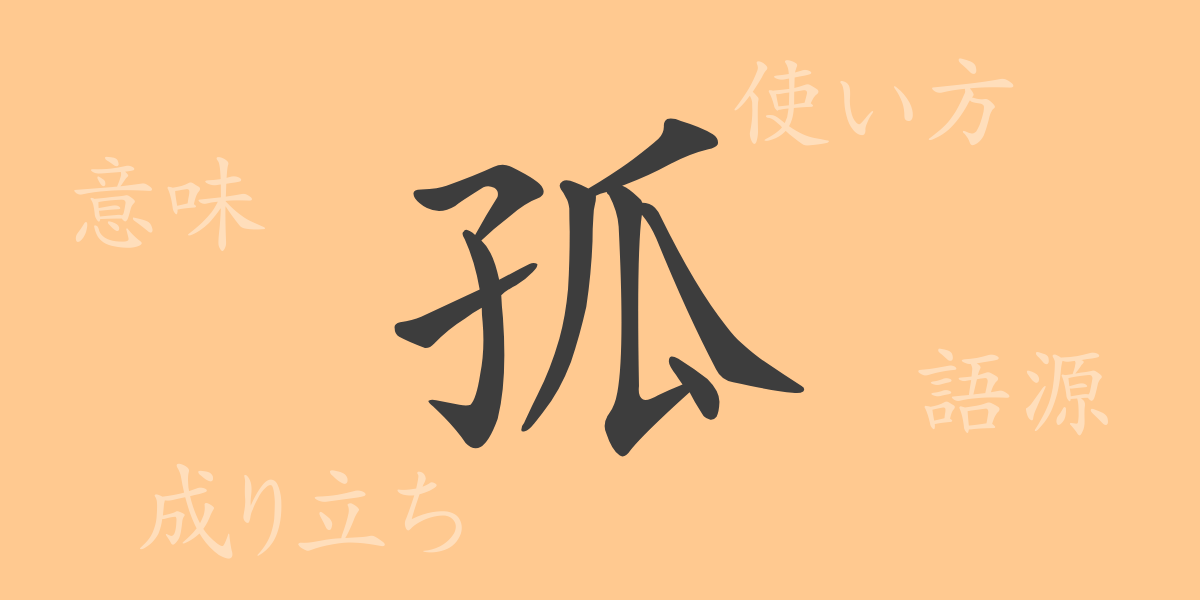Loneliness is a fundamental human emotion that resonates across cultures and languages. The Japanese kanji “孤” symbolizes this feeling and is used in various idioms and expressions. In this article, we delve into the deep meaning of the character “孤,” its usage, origin, and significance in our daily lives.
Origins of 孤 (Etymology)
The kanji “孤” traces its origins to ancient Chinese pictographs. The original form depicted a bird separated from its nest, symbolizing isolation and independence. Over time, the character evolved to encompass emotional aspects such as loneliness and solitude.
Meanings and Uses of 孤
The character “孤” primarily signifies isolation, being alone, or loneliness. It combines with other kanji to form compound words that describe various situations and emotions. For instance, “孤独(こどく)” refers to being alone or feeling lonely, while “孤立(こりつ)” indicates a state of being disconnected from others.
Readings, Stroke Count, and Radical of 孤
The basic information about the kanji “孤” is as follows:
- Readings: The On’yomi (音読み) is “コ” (こ). There is no Kun’yomi (訓読み).
- Stroke count: It has a total of 9 strokes.
- Radical: The radical is 子(こ, ね), which represents “child.”
Idioms, Phrases, and Proverbs Using 孤
Numerous idioms, phrases, and proverbs in Japanese incorporate the character “孤,” reflecting its rich expressive potential. Here are a few examples:
- 孤独(こどく): Being alone or feeling lonely.
- 孤立(こりつ): A state of being isolated or without support or cooperation from others.
- 孤児(こじ): An orphan, a child who has lost both parents.
- 孤高(ここう): Living according to high ideals or values that set one apart from others.
Conclusion About 孤
The kanji “孤” not only describes states of loneliness and isolation but also positively represents having unique values or ideals, as seen in “孤高(ここう).” This character’s diverse meanings enrich the expression of human emotions and social relationships in Japanese, highlighting the language’s depth and complexity. By understanding the background and nuances of “孤,” we can appreciate the power of words in conveying intricate feelings and situations.

























